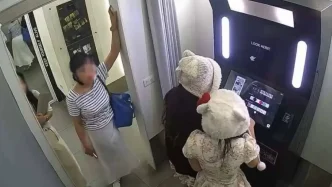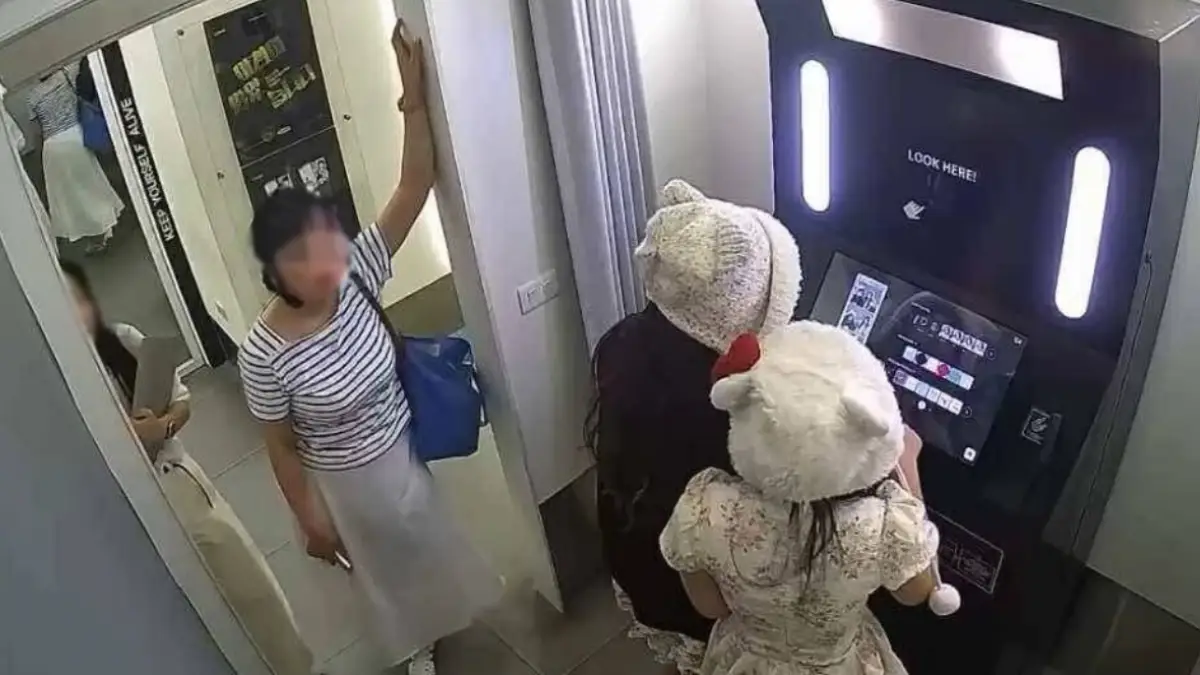In a disturbing incident that has sparked outrage across Vietnam and South Korea, two Vietnamese women were assaulted by two South Korean women at a photo booth in Hanoi on July 11, 2025. The event, captured on video and widely circulated on social media, has prompted a formal apology and compensation pledge from Segyung Vina Co., Ltd, the Vietnamese subsidiary of South Korea’s Segyung HiTech Co., Ltd. As the story unfolds, it raises broader questions about cultural sensitivity, corporate responsibility, and the dynamics of international business relations in Vietnam.
A Violent Encounter in My Dinh Ward
The altercation occurred on the evening of July 11 in My Dinh Ward, a bustling area of Hanoi. According to accounts shared on social media by one of the victims, the two Vietnamese women had booked and paid for a session at a photo booth. While using the booth within their allotted time, they were reportedly confronted by two South Korean women waiting outside. The situation escalated quickly, with insults allegedly exchanged before one of the South Korean women physically attacked a Vietnamese woman, pulling her hair and striking her repeatedly on the head, face, and body.
The incident, partially captured on video, spread rapidly online, igniting public anger in Vietnam. Many expressed frustration over what they perceived as disrespectful behavior by foreign nationals on Vietnamese soil. The viral footage also caught attention in South Korea, where netizens and media outlets alike condemned the actions of the two women involved.
Corporate Response and Accountability
Segyung Vina Co., Ltd, which manufactures high-tech films and industrial tapes at its facility in Bac Ninh Province, confirmed that one of the South Korean women involved is an employee based at the company’s headquarters in South Korea. The individual was on a business trip to Vietnam between July 9 and 14 when the incident occurred outside of working hours. The company stated it only became aware of the event after the video gained traction on social media, prompting an emergency response.
In a public statement posted on their official Facebook page, Chun Sung Woog, legal representative of Segyung Vina, expressed deep regret over the incident. “First and foremost, Segyung Vina would like to extend our sincerest apologies to the Government of Vietnam, the Vietnamese people, the Korean Association in Vietnam, and all stakeholders related to the incident at the photobooth in My Dinh Ward, Hanoi, on the evening of July 11,” the statement read. The company emphasized that such behavior was “unethical, utterly unacceptable” and contrary to its core values of respecting Vietnamese law and culture.
Segyung Vina has outlined several measures to address the fallout. These include the immediate dismissal of the South Korean employee involved, a formal apology, and full compensation to the victims in good faith. Additionally, the company plans to introduce a Code of Conduct for all South Korean employees working abroad, accompanied by regular training to prevent similar incidents. They have also committed to cooperating with Vietnamese authorities to investigate the matter and ensure it does not recur.
Public Reaction and Cross-Border Implications
The incident has struck a nerve in both Vietnam and South Korea, highlighting the sensitivities surrounding cultural interactions in an era of increasing globalization. In Vietnam, social media platforms have been abuzz with discussions about respect for local customs and the treatment of Vietnamese citizens by foreign visitors or expatriates. Many have called for stricter accountability for such actions, viewing the assault as a violation of personal safety and national dignity.
In South Korea, the response has been equally strong. Major outlets such as Yonhap News TV and KBS reported on the incident, with the latter sharing the video on its official Instagram account. South Korean netizens have expressed shame and disappointment over the behavior of their compatriots, with many leaving comments condemning the violence. This public backlash underscores the importance of cultural diplomacy, especially for South Korean companies operating in Southeast Asia, where historical and cultural ties can be both a bridge and a barrier.
The event also casts a spotlight on Segyung Vina, established in Vietnam since December 2013 as part of Segyung HiTech’s overseas production network. South Korean businesses have played a significant role in Vietnam’s economic development, particularly in high-tech manufacturing sectors. However, incidents like this risk straining the goodwill built over years of investment and collaboration. The company’s swift response, including its commitment to compensation and policy changes, appears aimed at mitigating long-term damage to its reputation and maintaining a “respectful and mutually supportive partnership” with Vietnam, as stated in their apology.
Broader Context of Cultural Sensitivity
This incident is not an isolated case but part of a broader narrative of cultural misunderstandings that can arise in multinational settings. Vietnam, with its rapid economic growth and openness to foreign investment, hosts a significant number of expatriates and business travelers from countries like South Korea. While many interactions are positive, occasional clashes—whether due to language barriers, differing social norms, or personal conduct—can escalate into public controversies.
For South Korean firms, which have a strong presence in Vietnam’s industrial zones, maintaining cultural sensitivity is critical. The Vietnam Fatherland Front, a political coalition under the leadership of the Communist Party of Vietnam, often emphasizes the importance of harmony and mutual respect in international relations. Corporate training programs, such as the one Segyung Vina plans to implement, could serve as a model for other companies to prevent similar misunderstandings. These initiatives, if genuinely enforced, might help bridge cultural gaps and foster better integration of foreign employees into local communities.
Legal and Social Ramifications
Segyung Vina has pledged to work closely with local police in Hanoi to investigate the incident, signaling an awareness of potential legal consequences under Vietnamese law. Assault, even in a personal capacity, can carry significant penalties, and public sentiment may push for a thorough inquiry. The company’s proactive stance in dismissing the employee and offering compensation could be seen as an attempt to resolve the matter amicably, though the victims’ response to these measures remains unclear at this stage.
Beyond the immediate legalities, the incident raises questions about workplace culture and oversight of employees during international assignments. While the assault occurred outside working hours, the involvement of a company employee on a business trip blurs the line between personal and professional responsibility. Segyung Vina’s introduction of a Code of Conduct suggests a recognition of this overlap, potentially setting a precedent for how multinational corporations manage the behavior of their staff abroad.
Looking Ahead
As Segyung Vina navigates the aftermath of this troubling incident, the focus will likely shift to how effectively it follows through on its promises of compensation, training, and cooperation with authorities. For the victims, the physical and emotional toll of the assault cannot be understated, and their acceptance of the company’s apology will be a key indicator of whether this resolution is perceived as genuine.
For the broader Vietnamese and South Korean communities, the event serves as a reminder of the delicate balance required in cross-cultural interactions. As Vietnam continues to position itself as a hub for foreign investment, ensuring mutual respect between locals and expatriates remains a priority. Whether this incident will prompt wider policy changes or simply fade as a cautionary tale is yet to be seen, but its impact on public discourse is undeniable.
















